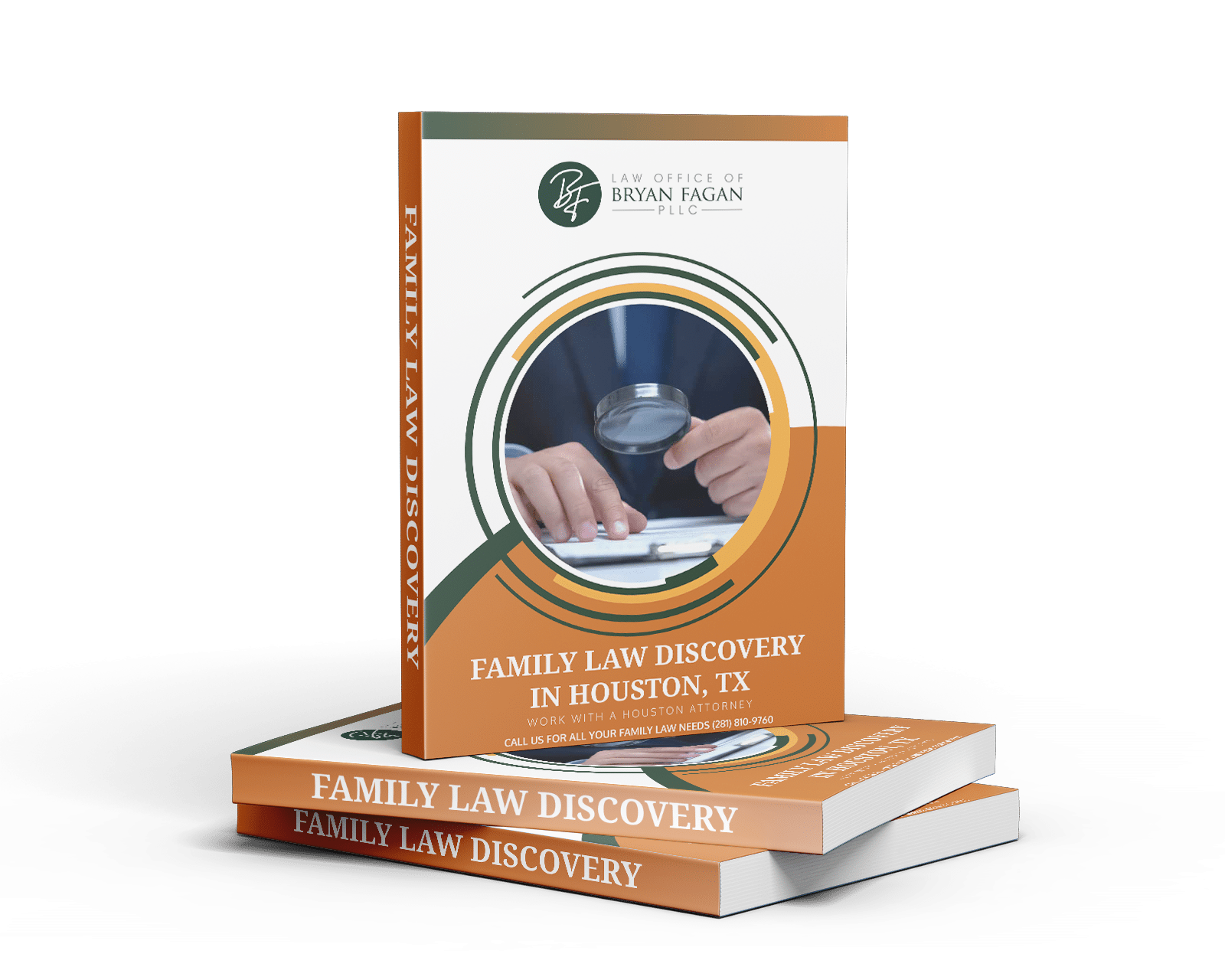
You’ve always dreamed of becoming a parent, and now that opportunity is within reach. Private adoption in Texas provides a more direct, personal path to parenthood by allowing adoptive and birth parents to connect without going through traditional agency channels. This approach offers greater flexibility, fewer delays, and the chance to build a meaningful relationship from the start. Whether you’re hoping to adopt or considering placing a child for adoption, private adoption can create a compassionate, customized experience that reflects the needs and values of everyone involved.
Short answer: Yes, private adoption in Texas allows adoptive parents to work directly with birth parents, making the process more personal and flexible. But before you dive in, there are essential legal steps, emotional considerations, and financial aspects you need to understand.
So, how does it all work? What are the legal requirements? How do you prepare emotionally? This guide will answer all your questions. It breaks down everything from home studies to financial planning—even real-life adoption stories. If you’re considering private adoption in Texas, keep reading. You’re about to embark on one of the most meaningful journeys of your life!
Key Takeaways
- Private adoption in Texas requires a thorough understanding of legal steps, including consent from birth parents and compliance with state laws, to ensure a smooth adoption process.
- The role of adoption attorneys is crucial in navigating the complexities of legal documentation, rights of all parties, and ensuring compliance with Texas adoption laws.
- Adoptive families must consider the implications of open versus closed adoptions, as each option presents different emotional impacts and long-term relationships with birth parents.
Understanding Private Adoption in Texas
Private adoption in Texas allows adoptive parents to work directly with birth parents, creating a more personal and flexible adoption process. Unlike agency or foster care adoptions, this approach does not involve intermediaries, but it must comply with strict legal requirements under Texas Family Code Chapter 162. Birth parents must provide voluntary consent through a properly executed affidavit (Texas Family Code § 162.010), and if the child is 12 or older, their consent is also required unless waived by the court. Additionally, adoptive parents must complete a home study, which includes background checks, financial reviews, and home evaluations.
To ensure a legally sound adoption, prospective parents should work with an experienced attorney to navigate potential challenges. Legal pitfalls, such as improperly executed consent forms or claims from biological fathers, can delay or jeopardize the process. Compliance with Texas Family Code § 162.011 is crucial, as it governs the execution and revocation of consent. The Law Office of Bryan Fagan PLLC provides expert guidance to help families avoid these complications and complete the adoption process smoothly.
For a successful adoption, it’s essential to understand post-adoption requirements, including obtaining a revised birth certificate and finalizing legal documentation. With the right legal support, families can confidently navigate the process while ensuring compliance with Texas law. Learn more about the legal steps and best practices for private adoption in Texas by visiting this resource.
Legal Requirements for Private Adoption
Private adoption in Texas requires adoptive parents to meet specific legal criteria to ensure the adoption process complies with Texas Family Code Chapter 162. Prospective adoptive parents must satisfy residency requirements and demonstrate financial stability to provide a secure environment for the child. Under Texas Family Code § 162.002, all adoptive applicants must complete a home study, which includes background checks, financial assessments, and interviews to determine their suitability as parents. Working with an experienced adoption attorney can help clarify these legal requirements and prevent delays in the adoption process.
The rights of birth parents play a crucial role in private adoption. According to Texas Family Code § 162.010, birth parents must provide written consent before an adoption can proceed. If the child is 12 years or older, their consent is also required unless the court waives this requirement based on the child’s best interest. In cases where one biological parent’s rights have been terminated, the other parent’s consent remains necessary unless otherwise determined by the court. Ensuring proper legal documentation is critical to avoid future challenges or contested adoptions.
An experienced adoption attorney is essential for navigating the complexities of private adoption in Texas and ensuring compliance with all state laws. Legal representation helps facilitate necessary filings, safeguard the rights of all parties involved, and ensure the adoption is finalized without complications. The Law Office of Bryan Fagan PLLC provides expert legal support to guide families through the adoption process. Learn more about private adoption and your legal rights by visiting this resource.

The Home Study Process
The home study process is a critical component of the adoption journey. Adoptive parents in Texas must ensure their home is suitable and safe for a child, as mandated by state law. This involves a comprehensive evaluation of the living conditions, including background checks and assessments of the adoptive family’s readiness to welcome a child.
Background checks are an integral part of the home study, examining the criminal records and child abuse histories of all household members, including any relevant protective services involvement. The court typically mandates these reports to ensure the child’s best interests are being met.
Adoptive parents must comply with a six-month cohabitation rule, which can be waived if it’s in the child’s best interest. Understanding and successfully completing the home study process is crucial for adoptive families on their journey to adopt a child.
Filing Adoption Petitions
Filing an adoption petition marks the formal beginning of the legal adoption process. In Texas, this requires filing the petition in the appropriate court, accompanied by necessary documentation such as consent forms from the biological parents. These consent forms must be duly signed and witnessed by a notary or official to be legally valid.
Texas law mandates a waiting period of typically 48 hours post-birth before consent for adoption can be finalized. This ensures that birth parents have adequate time to make an informed decision. Additionally, both biological parents’ rights must be terminated for the adoption to proceed, allowing the adoptive parents to assume full legal responsibilities for the child.
The legal termination of parental rights is a significant step in the adoption process. It is essential to ensure that all legal documentation is correctly filed and that the adoption complies with Texas law, protecting the rights of both the birth and adoptive families. Engaging with a licensed adoption agency or attorney can provide the necessary support and guidance through this complex process.
Termination of Parental Rights
Termination of parental rights is a mandatory step in the adoption process, as it allows adoptive parents to assume full legal responsibilities for the child. In Texas, both biological parents’ rights must be terminated for a child to be adoptable, either voluntarily or involuntarily. Voluntary termination occurs when a parent willingly relinquishes their rights, often facilitated by an adoption agency or attorney.
Involuntary termination, on the other hand, requires a court action and valid grounds such as neglect or abuse. The legal framework for involuntary termination requires a high standard of proof, showing that a parent’s actions warrant this significant legal measure. Under the Texas Family Code, the court must find clear evidence of harm—or a substantial risk of harm—to the child before granting an involuntary termination of parental rights.
Understanding these legal nuances is crucial for both prospective adoptive parents and birth parents.
Open vs. Closed Adoptions
One of the most significant decisions in private adoption in Texas is whether to pursue an open or closed adoption. Under Texas Family Code § 162.018, adoption records can either be sealed (closed adoption) or allow for ongoing communication between birth parents and adoptive families (open adoption). In an open adoption, birth parents and adoptive families establish a mutually agreed-upon level of contact, which may include regular updates, phone calls, or even in-person visits. This arrangement can provide emotional benefits for both the child and birth parents, fostering a sense of identity and connection.
On the other hand, a closed adoption involves sealing all records, preventing contact between birth parents and adoptive families. Under Texas Family Code § 162.006, once an adoption is finalized, records become confidential unless a court order grants access. Closed adoptions may be preferable for families seeking privacy or in situations where contact with birth parents is not in the child’s best interest. However, in Texas, adoptees may later petition the court to access their birth records under certain circumstances.
Choosing between open and closed adoption depends on various factors, including emotional readiness, long-term impact on the child, and legal considerations. The Law Office of Bryan Fagan PLLC can help prospective adoptive parents navigate these options and make an informed decision that best suits their family’s needs. Learn more about the different types of adoption in Texas by visiting this resource.

Financial Assistance for Birth Mothers
Financial assistance for birth mothers is a crucial aspect of the private adoption process. Birth mothers can receive support for living expenses during their pregnancy, which may include rent, utilities, and groceries. Additionally, free counseling services are available to help birth mothers navigate the emotional complexities of the adoption process.
It’s important to note that the Texas Department of Family law does not impose a cap on the amount of living expenses that can be paid to birth mothers during the adoption process. However, adoptive families must not directly pay these expenses; instead, all payments should be handled through a licensed adoption agency to ensure compliance with legal requirements.
This financial support helps birth mothers focus on their well-being and make informed decisions about their child’s future, ensuring that the role of a birth mother is respected and supported.
Role of Adoption Attorneys
The legal process for private adoption in Texas is complex. It requires strict compliance with state laws to ensure the adoption is smooth and legally valid. Under Texas Family Code § 162.001, adoptions must be finalized through the court. This includes filing proper legal documents, securing parental consent, and completing post-placement requirements. An experienced adoption attorney is essential. They help manage each legal step, explain the adoptive parents’ rights and responsibilities, and protect the child’s best interests.
Beyond handling legal paperwork and court representation, adoption attorneys also facilitate communication between birth parents and adoptive families. According to Texas Family Code § 162.010, birth parents must give voluntary and informed consent for the adoption to move forward. An attorney ensures this process is handled ethically and legally. Whether the adoption is open or closed, legal counsel helps maintain transparency. They also protect the rights of all parties involved. This reduces the risk of future disputes or complications.
At the Law Office of Bryan Fagan PLLC, our attorneys provide comprehensive legal guidance to families navigating private adoption in Texas. From initial consultations to finalizing the adoption in court, we are dedicated to making the process as smooth and stress-free as possible. Learn more about key adoption considerations by visiting this resource.

Finding Birth Parents
Many prospective adoptive parents seek birth parents to bless families who are unable to have children. This noble intention drives the search for birth parents and forms the foundation of a meaningful adoption journey for the adoptive parent.
Navigating the legal documentation required for private adoption in Texas can be daunting. Compliance with specific legal regulations is essential, and these differ from those of agency adoptions. Prospective adoptive parents must understand these requirements to navigate the process effectively with a Texas adoption agency.
Filing adoption petitions involves collecting and submitting the necessary legal documents to initiate the process. The legal termination of parental rights is also essential to finalize an adoption and ensure that adoptive parents can assume full parental responsibilities.
Working with an experienced adoption attorney helps navigate these complexities and protects the rights of all parties involved.
Preparing for Post-Adoption Proceedings
Ensuring a smooth transition after finalizing private adoption in Texas is just as important as the legal process itself. Under Texas Family Code § 162.017, adoption records can be either sealed (closed adoption) or allow for ongoing contact between birth parents and adoptive families (open adoption). Open adoptions often help children develop a stronger sense of identity by maintaining connections with their biological families. However, closed adoptions may provide privacy and closure for all parties, which can be beneficial in certain circumstances. Understanding the emotional and legal implications of each option is essential for adoptive families.
The psychological effects of adoption extend to birth parents, adoptive parents, and, most importantly, the child. Open adoptions can offer emotional reassurance to birth parents, while closed adoptions may leave unanswered questions. Texas Family Code § 162.016 outlines post-adoption requirements, including access to support services and counseling. These resources help families navigate challenges and ensure the well-being of everyone involved. Post-placement visits and continued communication, when appropriate, can play a vital role in a child’s emotional stability and long-term adjustment.
At the Law Office of Bryan Fagan PLLC, we provide guidance on post-adoption legal considerations, emotional support resources, and strategies for maintaining a healthy family dynamic. Whether you choose an open or closed adoption, we help ensure that your adoption journey remains legally secure and emotionally fulfilling. Learn more about the next steps after adoption by visiting this resource.

Real-Life Examples and Testimonials
Real-life examples and testimonials provide invaluable insights into the private adoption process. Adoptive parents can create rituals to remember and honor the birth family, promoting a sense of acceptance in the child. Encouraging open conversations about the birth family helps normalize the topic and makes children feel comfortable discussing their backgrounds.
Prospective adoptive parents should initiate discussions about the child’s birth family early on, using age-appropriate language to answer questions honestly. Older children and teenagers may express a desire to learn more about their biological parents as they navigate their identity within their adoptive family, which is important for a prospective parent to understand.
These real-life stories and practices exemplify successful private adoptions and highlight common challenges to avoid.
Conclusion:
Every adoption journey is deeply personal, and no two stories are alike—but all share a common thread of hope, love, and transformation. Private adoption in Texas offers a unique opportunity to create or grow a family through a more intimate, direct process. It’s not just about legal steps—it’s about building lasting connections between birth parents and adoptive families, grounded in trust and mutual respect. The path may include emotional ups and downs, paperwork, and difficult decisions, but the outcome is life-changing.
A child finds a loving home, birth parents gain peace of mind, and adoptive parents see their dream fulfilled. If you feel called to private adoption in Texas, take that step with courage and clarity. Surround yourself with trusted professionals, learn everything you can, and start writing the next chapter of your family’s story—one filled with purpose, compassion, and boundless love.
Other Related Articles:
- The Role of Biological Parents in Same-Sex Adoptions in Texas
- Procedures, Conditions, and Legal Considerations For Adoptions In Texas
- Open Versus Closed Adoptions: What Is the Difference?
- Top Required Documents for Filing a Texas Adoption Petition
- The Ultimate Guide to How Foster Care Adoption Works in Texas
- Types of Adoption in Texas: Which One Is Right for You?
- Can You Adopt While on Active Duty?
- Pre-Adoptive Social Studies: What Will Yours Look Like and What Should You Expect
- Texas Adoption FAQs
- Adult Adoption in Texas: Why, When, and How Does It Affect Inheritance?




